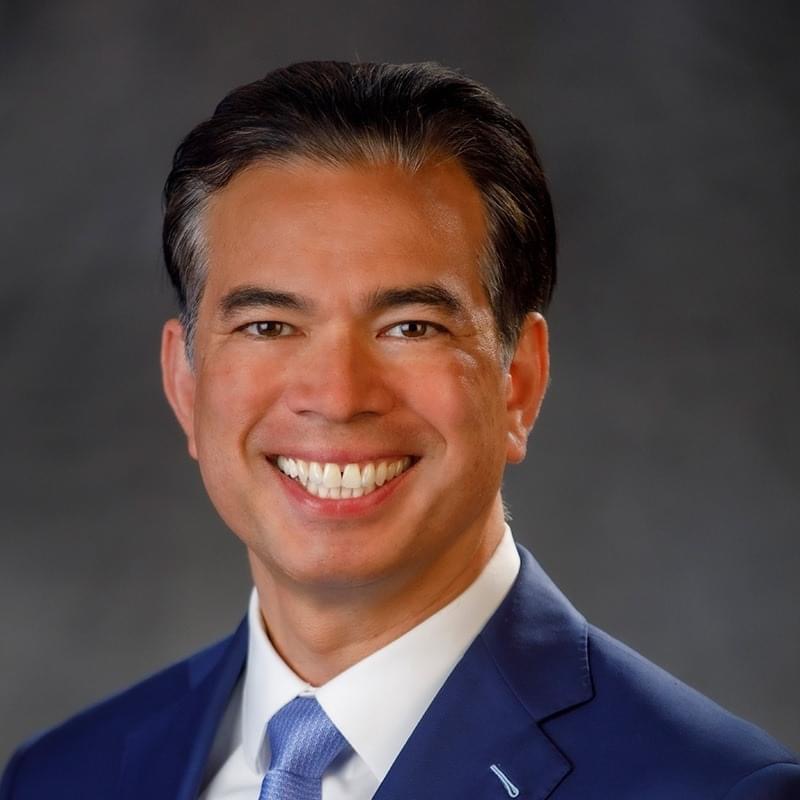Holiday giving: How to donate safely and avoid charity fraud
LOS ANGELES – California Attorney General Rob Bonta has provided tips on how to donate safely and avoid charity fraud this holiday season.
At a news conference, Bonta encouraged donors to ensure that their donations get into the correct hands. “Every holiday season, the generosity of Californians is on full display,” Bonta told members of the media at the Downtown Women’s Center on Nov. 27.

“Up and down our state, they donate their time and hard-earned money to charitable organizations doing incredibly important work.”
Bonta said the Downtown Women’s Center is one of those organizations. He thanked the center for partnering with his office in promoting awareness of how to avoid charity scams
He has primary regulatory oversight of charities and the professional fundraisers who solicit on their behalf in California.
The Attorney General may investigate and bring legal action against charities that engage in fraudulent fundraising practices.
Tips on how to donate safely
Bonta offered the following tips on how to donate safely and avoid charity fraud.
Check the registration status
The Attorney General’s Registry of Charitable Trusts requires charities and professional fundraisers soliciting donations in California to register and file annual financial reports.
Before you donate, make sure to confirm that the charity is registered and up to date with its financial reporting. The Registry of Charitable Trust’s Registry search tool allows you to search the Registry’s database. You may also verify whether a charitable organization or fundraiser has complied with the Attorney General’s registration and reporting requirements.
Give to organizations you trust
Always do your research before making a donation. Review the charity’s annual financial reports. Find out how much of your donation will go to the charitable cause. Find out how much, if any, will go to overhead and employee compensation. Research charities in your community and support those that make a positive impact.
Don’t be pressured by telemarketers
If you receive a call from a telemarketer, do not fall for pressure tactics or threats. Remember, you have the right to decline a donation request and can hang up. Visit the organization’s website or contact them directly to get more information.
Be cautious of “look-alike” and fake websites and emails
Watch out for websites and emails that use slightly different web addresses (URLs) or email addresses to pass off as a legitimate charity.
Be careful of fake websites by closely looking at the web address. Be cautious of web addresses that end in a series of numbers. If a charity’s website or email is asking for your detailed personal information, it may likely be a scam.
Watch out for similar-sounding names and other deceptive tactics
Some organizations use names that closely resemble those of well-established charitable organizations to mislead donors.
Take extra precautions before clicking on any links. Be skeptical if someone thanks you for a pledge or donation that you never made. Scammers use this trick to deceive you into paying them. If you are unsure whether or not you made a donation, make sure to check your records.
Be wary of peer-to-peer social network fundraising
Do not assume a fundraising campaign online or on social media is legitimate even if it is shared by someone you trust.
Do your research and find out whether your donation is going directly to a charity or to the person who created the campaign. Find out whether the person who created the campaign will keep a portion of your donation, or there’s a fee for donating.
Protect your identity
Never give your Social Security number and credit card information in response to a charitable solicitation. Some organizations may sell or rent their donor lists to other organizations. Review the charity’s privacy policy to find out if they plan to share your information with outside companies.
Be careful when making electronic donations
Remember that anyone can create a QR code, send a text or buy a portable card reader. Make sure the person facilitating the transaction is authorized to receive donations on behalf of a charity. Always check your receipt and your credit card statement to ensure that the transaction charged to your account is accurate.
For more information on how to protect yourself against charity fraud, visit https://oag.ca.gov/donations.

